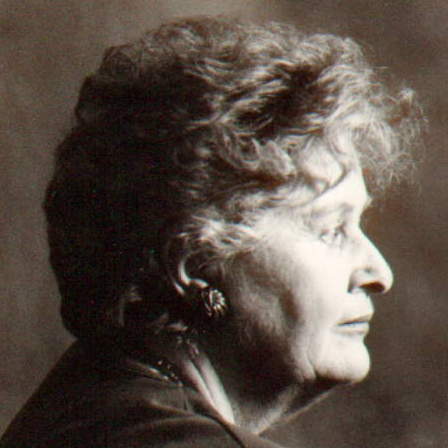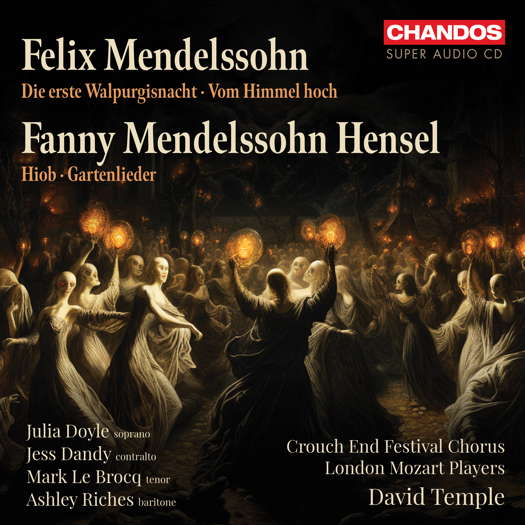 DISCUSSION: What is a work? John Dante Prevedini leads a discussion about The performing artist as co-creator, including contributions from Halida Dinova, Yekaterina Lebedeva, Béla Hartmann, David Arditti and Stephen Francis Vasta.
DISCUSSION: What is a work? John Dante Prevedini leads a discussion about The performing artist as co-creator, including contributions from Halida Dinova, Yekaterina Lebedeva, Béla Hartmann, David Arditti and Stephen Francis Vasta.
 SPONSORED: An Integral Part - Lindsey Wallis looks forward to the Canadian Music Centre's tribute concert to composer Roberta Stephen.
SPONSORED: An Integral Part - Lindsey Wallis looks forward to the Canadian Music Centre's tribute concert to composer Roberta Stephen.
All sponsored features >>
 DISCUSSION: John Dante Prevedini leads a discussion about Music and the Visual World, including contributions from Celia Craig, Halida Dinova and Yekaterina Lebedeva.
DISCUSSION: John Dante Prevedini leads a discussion about Music and the Visual World, including contributions from Celia Craig, Halida Dinova and Yekaterina Lebedeva.

Inspired and Joyous Choral Singing
GERALD FENECH strongly recommends choral music by Fanny and Felix Mendelssohn
'... stirring music from beginning to end from, maybe, the most famous siblings in nineteenth century musical history.'
Please allow me to introduce to you, all music lovers, two exceptional composer-siblings: Fanny and Felix Mendelssohn. Fanny Cäcilie Hensel (1805-1847), the older sister of Felix, is mentioned in all biographies of her brother as an enthusiastic musician, especially as a pianist. Both her father and brother knew that she composed songs and piano music, but the situation of women in the first half of the nineteenth century was extremely precarious, and she was advised not to publish her works. In the course of her short life, cut off by a stroke at the age of forty-one, Fanny managed to compose about five hundred works, mostly in the genres mentioned above, but what many do not know is that at the early age of twenty-six she had already composed three large works for chorus and orchestra: Lobgesang (Song of Praise), Hiob (Job) and Cholera Cantata (all from 1831).
The main focus here is Hiob. This cantata draws its text entirely from the relevant book of the Old Testament, and is laid out in three movements, with a central recitative separating two elaborate choruses. The first two movements raise the existential question: 'What is man, that Thou doth make so much of him?' The final chorus is an elaborate expression of confidence, with musically rich contrapuntal structures and fervent expression.
Listen — Fanny Mendelssohn: Leben und Wohltat hast du an mir getan (Hiob)
(CHSA 5318 track 9, 0:00-0:51) ℗ 2024 Chandos Records Ltd :
The Gartenlieder (Garden Songs), Op 3, for unaccompanied choir, were composed in 1846, and were inspired by the gardens and summerhouse at the family's Leipzigerstrasse residence in Berlin, where Fanny held her choir rehearsals.
Listen — Fanny Mendelssohn: Abendlich schon rauscht der Wald (Gartenlieder)
(CHSA 5318 track 14, 1:35-2:11) ℗ 2024 Chandos Records Ltd :
Felix Mendelssohn's life is only too well documented, so I think it fit to just concentrate on his two choral works on this disc and leave other details aside. Die erste Walpurgisnacht (The First Walpurgis Night), a poem by Goethe, was first taken up by Mendelssohn in 1830. It was first performed at his parents' home after Goethe's death the following year, and then publicly on 10 January 1833 at the Sing-Akademie in Berlin with Felix himself on the podium. The cantata was eventually published in 1843 as his Ballade, Op 60, after extensive revisions. This final version consisted of an Overture followed by nine movements. The story is about a prank who allows for a local tradition to take place in spite of opposition from an intolerant new regime. The Druids and local heathen would celebrate May Day but, as a women's chorus warns, this is now forbidden. The Druid priests counter that those who fear to sacrifice deserve their chains. A comic solution emerges as a Druid watchman suggests a masquerade of the Devil, spirits and demons to frighten the occupying Christians. The latter are scared away and the Druids and heathen are left to celebrate Spring and the Sun.
Listen — Felix Mendelssohn: So weit gebracht (Die erste Walpurgisnacht)
(CHSA 5318 track 24, 0:40-1:29) ℗ 2024 Chandos Records Ltd :
Felix Mendelssohn composed the choral cantata Von Himmel hoch, da komm ich her (From Heaven above to earth I come) in 1831 in Rome on an extended trip to Italy. The hymn was written by Martin Luther in 1534 for use in his family during Christmas. Coincidentally, the composer wrote the piece while staying in a monastery where Luther had also resided on a trip. The cantata is scored for soprano, baritone and a five-part mixed chorus and orchestra and, at some fifteen minutes, is the longest of Felix Mendelssohn's eight choral cantatas.
Listen — Felix Mendelssohn: Allegro (Von Himmel hoch)
(CHSA 5318 track 1, 0:50-1:44) ℗ 2024 Chandos Records Ltd :
Apart from Fanny's Gartenlieder, which oozes serenity throughout, the rest of the programme is a brilliant tour-de-force of inspired and joyous choral singing, interspersed with some formidable solo vocal performances and intense orchestral virtuosity.
This is stirring music from beginning to end from, maybe, the most famous siblings in nineteenth century musical history. Immaculate sound and presentation are added plusses. Strongly recommended.
Copyright © 26 January 2024
Gerald Fenech,
Gzira, Malta



